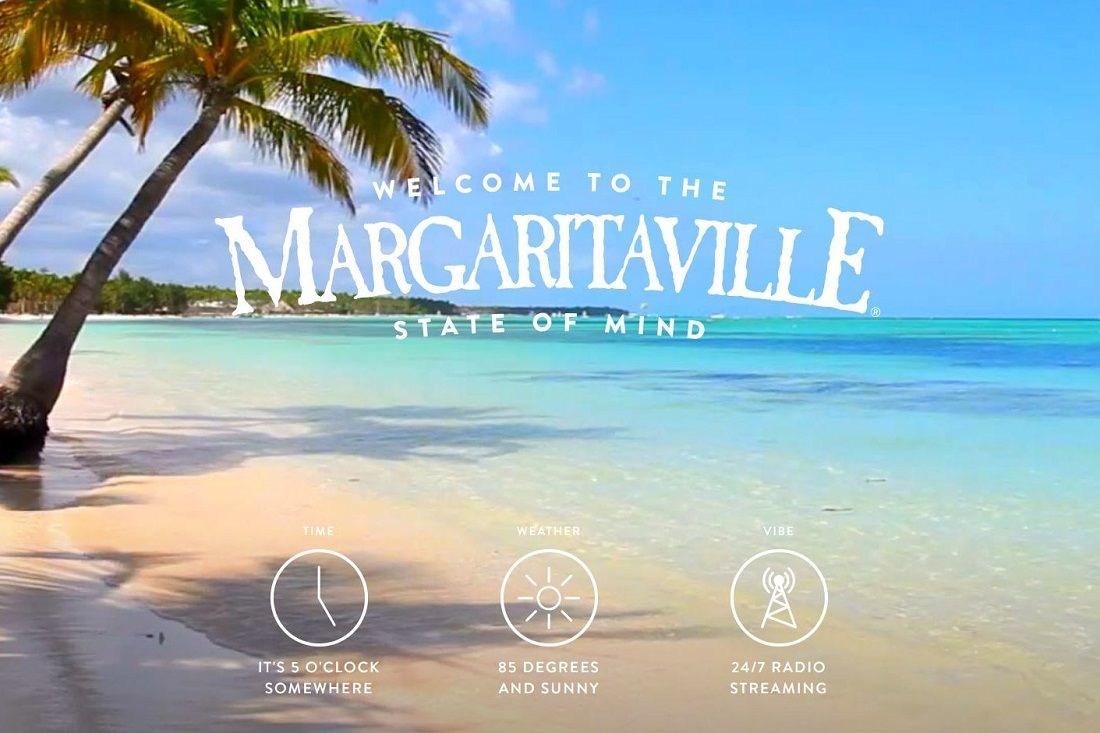This little song sort of combines a hangover cure and fourteen years of Catholic education into a song; it’s a little bit weird, but it sort of works out.[1]
Jimmy Buffett, the king of “drunk Caribbean rock and roll music,” may seem like an unlikely person to be an example of the Catholic imagination. In his music, merchandise, restaurants, and resorts, Buffett revels in escapism and pleasure, giving license to hedonsim and letting it run amok. He has accrued a tremendous amount of wealth through these endeavors and cultivated a devoted following, known as Parrotheads. Indeed, he would seem to be the Evangelist for just the kind of leisure recently criticized by Paul Griffiths.
Buffett peddles the side of leisure (otium) decried by St. Augustine too in his City of God as delight in “lazy inactivity” (iners vacatio).[2] Buffett’s incredible success, however, bespeaks in his fans an instinctual dissatisfaction with the demands of modern work and a desire to get away, to escape and have a good time, to have fun. Jimmy Buffett has been able to tap into the ennui of late twentieth- and early twenty-first-century society, in large part because of his upbringing in the distinctive Catholic culture native to the former French territories of the American Gulf Coast from New Orleans to Mobile (his hometown). At one level the view of his army of loyal adherents is correct. There is more to life than work and financial gain. For many Parrotheads, this longing is translated into enjoyment of cold beverages (often to excess) while relaxing on a sandy beach. And yet, Buffett himself is critical of this attitude, writing in “Cowboy in the Jungle” (1978), “They’re tryin’ to drink all the punches / They all may lose their lunches / Tryin’ to cram lost years into five or six days / Seems that blind ambition erased their intuition / Plowin’ straight ahead come what may. / I don’t want to live on that kind of island . . .”[3] Might this contain a faint echo, perhaps just a whisper, of Augustine’s famous insight, “our hearts find no peace until they rest in you”?[4]
After spending fourteen years in Catholic confinement, I was ready to make up for lost time.[5]
Jimmy Buffett makes no secret of his Catholic background. In the song “We Are the People Our Parents Warned Us About,” (1983) a Baby Boomer’s acknowledgment of parental concerns, Buffett reveals that “I was supposed to have been a Jesuit priest or a Naval Academy grad.” He continues that these were his parents’ plans for him, but that he “couldn’t fit the part too dumb or too smart,” and it is left to the listener to decipher the ambiguous meaning of which adjective belongs to which career path.[6] There must have been a strong Catholic culture in place, if his parents thought that a religious vocation was of equal value and prestige to attending one of the country’s elite military colleges. Like most Catholic boys, especially in the middle of the twentieth century, Buffett would have been introduced in a serious way to the priesthood as an altar boy, and this experience plays an important role in a few of his songs. Buffett pokes fun at the craziness of modern life in the song “Fruitcakes” (1994), written with Amy Lee, including a consideration of religion. He begins this verse with the well-known phrase from the penitential rite “mea culpa, mea culpa, mea maxima culpa.”[7] By his own admission, he’s “just an altar boy coverin’ his ass,” and in the song “Coastal Confessions” (2004), he sings “O bless me father yes I have sinned / Given the chance I’ll prob’ly do it again / I don’t need absolution just a simple solution will do.”[8] There is little piety here but rather a contradiction: an implicit acknowledgment of sin by reciting the well-worn formula of confession but a defiant stance against repentance and absolution. There is also irony as the recording ends with Buffett reciting, not singing, as if he were making a confession, including the old chestnut “I had impure thoughts.” He has a problem to which he has gone to a priest for help, but he refuses the main thing that the priest can give him. Whatever this may mean for him personally, it is clear that Catholicism left an indelible mark on his imagination.
Another formative experience for Catholic youth in the mid-twentieth century was the parochial school, and this too makes an appearance in several songs. The principal force to be reckoned with here were the sisters. And as Buffett sings in a song co-written with Jay Oliver, “Kindergarten / King of excuses / Sister Mary Mojo, so hard to trick / What can I say / The dog ate my homework / I could play the game.”[9] Buffett presents himself as an incorrigible student and given his on-stage persona this is easy to believe, but there in the verse there is also a deep respect for the woman in authority. Perhaps he is projecting into the past, but in the song “Workin’ N’ Playin’,” written for the tour by the same title (2015), Buffett claims that the sisters tried to dissuade him from his intended career to just have fun, writing “I got schooled on submission and forgiveness / But the nuns said fun ain’t none of your business / So I got motivated gonna prove ’em all wrong.”[10] Once again there is a contradiction in the telling: in order to show that one can have a successful life by just having fun, Buffett commits himself to work hard. Of course, one of the main duties of the school teacher nun is to form Catholic kids in sound doctrine and piety. In his memorial for the influential New Orleans musician Allen Toussaint, Buffett mentions that “as the good nuns and brothers used to tell us, ‘The soul lives forever.'”[11] Buffett employs this observation as a transition in his piece to move from the personal effect of Toussaint’s death to the deceased’s legacy and importance in the history of New Orleans music. He is not talking, therefore, about redemption and the beatific vision, but it is clear that at some level the nuns’ and brothers’ lessons made a deep impression on Buffett’s mind.
We’re not the descendants of theologians, we’re the descendants of court jesters.[12]
In literature the jester or fool plays a crucial role. He has the ability to speak truth to the powerful without fear of reprisal, as for example in King Lear. Thus, Buffett’s identification with the role of court jester is significant. As we saw above, he has the paradoxical ability to criticize in his songs the very attitude and behavior from which he profits and also to point out the flaws in modern society and the modern economy to his audience, which in many respects comprises precisely the people who have most benefited from this situation but who implicitly know that there is more to life. This instinctual attitude receives its most concrete and lasting expression in the many charitable works of the Parrothead clubs that dot the country and do much good in their local communities.
On the occasion of the premiere of Buffett’s musical Escape to Margaritaville on Broadway this February, the singer-songwriter was profiled in the New York Times. The author, Taffy Brodesser-Akner, marveled that Jimmy Buffett did not live as one would expect from his persona. He might be the world’s most famous beach bum, but he eschews excess in his personal life and is a driven, hands-on entrepreneur. Moreover, she insightfully pointed out that some of Buffett’s songs have a biting and dark commentary. This is especially true of Alan Jackson’s “It’s 5 o’Clock Somewhere,” on the recording for which Buffett appears (2003), and which Buffett has adopted in many ways as his own, playing it at every concert. As Brodesser-Akner says, “Take away the jaunty island beat and you’ll find a song about a man who is so miserable that he can’t bring himself to return to work from his lunch break.”[13] This is not a happy song, even though many of Buffett’s Parrotheads revel in it as a personal anthem, a license to drink. Nevertheless, the meaning of the lyrics accords quite well with the view that Buffett has expressed himself in many of his own songs.
One example stands out in particular. In the song “Summerzcool,” Buffett writes “Bust your ass to get the good life / You make a habit out of overtime / When the big report card comes / Your priorities are way out of line.”[14] The message is that one needs to embrace “summer,” to get away from all of one’s duties and obligations, particularly in terms of work, and head to the water, have a few drinks, have some fun. In the context of the pun on "school," the invocation of a report card makes sense, but there is an ambiguity. Who is the principal or teacher filling in the grades? Is it God? Is Buffett talking about divine judgment in a song celebrating a beach party?
Buffett at times subtle and at times overt criticism of the modern obsession with work and the demands of the capitalist economy betrays a formation in Catholic teaching, especially in the Church’s social thought. In Rerum Novarum (1891), Pope Leo XIII argues for the fair and humane treatment of workers, emphasizing that time should be allotted to them in order to fulfill their religious devotions and obligations. After all, there is more to life than money and profit. It is clear that in a deep way Buffett internalized this outlook, which found expression in his celebration of the leisurely island and beach lifestyle.
Of the many challenges facing the Church today, perhaps one of the most important is whether her educational institutions and her parishes can still form young people in such a way that they will retain a fundamentally Catholic outlook on life, even when living at their most prodigal.
[1] Jimmy Buffett, You Had to Be There, recorded live August 1978, Introductory Dialogue on Side 3, ABC Records 1978, Vinyl LP.
[2] St. Augustine, City of God XIX c.19, trans. H. Bettenson (London: Penguin Books, 1984), p. 880.
[3] Jimmy Buffett, “Cowboy in the Jungle,” recorded 1978, track 7 on Son of a Son of a Sailor, Geffen 1987, Audio CD.
[4] Saint Augustine, Confessions I c.1, trans. R.S. Pine-Coffin (London: Penguin Books, 1961), p. 21.
[5] Jimmy Buffett, You Had to Be There, recorded live August 1978, Introductory Dialogue on Side 3, ABC Records 1978, Vinyl LP.
[6] Jimmy Buffett, “We Are the People Our Parents Warned Us About,” recorded 1983, track 8 on One Particular Harbour, Geffen 1987, Audio CD.
[7] Jimmy Buffett and Amy Lee, “Fruitcakes,” recorded 1994, track 1 on Fruitcakes, Margaritaville Records 1994, Audio CD.
[8] Jimmy Buffett, “Coastal Confessions,” recorded 2004, track 9 on License to Chill, Mailboat Records 2004, Audio CD.
[9] Jimmy Buffett and Jay Oliver, “That’s My Story and I’m Stickin’ To It,” recorded 1989, track 3 on Off to See the Lizard, Geffen 1989, Audio CD.
[10] Jimmy Buffett, “Workin’ N’ Playin’,” recorded as a single 2015, Mailboat Records 2015, Audio CD.
[11] Jimmy Buffett, “Jimmy Remembers Allen Toussaint,” November 12, 2015: https://www.margaritaville.com/jimmy-remembers-allen-toussaint
[12] “Jimmy Buffett Speaks,” Radio Bumper, Radio Margaritaville, Sirius XM.
[13] Taffy Brodesser Akner, “Jimmy Buffett Does Not Life the Jimmy Buffett Lifestyle,” in The New York Times, published February 8, 2018: https://www.nytimes.com/2018/02/08/arts/jimmy-buffett-does-not-live-the-jimmy-buffett-lifestyle.html
[14] Jimmy Buffett, “Summerzcool,” recorded 2009, track 6 on Buffett Hotel, Mailboat Records 2009, Audio CD.


